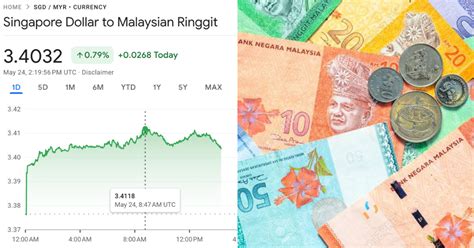After an interview, it’s common to feel a mix of excitement and nerves. You may be eager to hear back from the hiring manager, but before you leave, it’s crucial to ask a few thoughtful questions to demonstrate your interest and gain valuable insights. Here are 10 must-ask questions to help you make an informed decision about the role and the company:

1. What’s the Next Step in the Hiring Process?
This question shows that you’re enthusiastic about the position and keen on staying informed about the next steps. The hiring manager can provide you with a timeline for when to expect a decision or any additional interviews.
2. Can You Give Me More Details About the Company Culture?
Understanding the company culture is essential for assessing if you’re a good fit for the role. Ask about the company’s values, work-life balance, and employee benefits. This information will give you a glimpse into the daily work environment and help you determine if it aligns with your expectations.
3. What Are the Most Important Responsibilities of this Role?
This question clarifies your understanding of the position’s primary responsibilities and ensures that you’re fully aware of the expectations. It also shows the hiring manager that you’re serious about the role and eager to learn more about its specific requirements.
4. Can You Explain the Reporting Structure and Who I’ll Be Working With?
Understanding the reporting structure and your potential team members is essential for your success. Ask about who you’ll be directly reporting to, as well as your team’s size, skillset, and work style. This information will help you prepare for the role and build effective working relationships.
5. What Are the Opportunities for Professional Development?
If you’re looking to grow in your career, it’s important to know about the company’s commitment to professional development. Ask about training programs, mentorship opportunities, and any financial support for further education.
6. What Are the Biggest Challenges Facing the Company in the Next Year?
This question demonstrates your interest in the company’s future and your ability to think strategically. The hiring manager’s response will give you insights into the company’s goals, challenges, and market dynamics.
7. How Does the Company Measure Success for this Role?
Understanding the company’s expectations for success in the role is crucial. Ask about KPIs, performance metrics, and how your contributions will be evaluated. This information will help you set realistic goals and track your progress.
8. What’s the Company’s Stance on Work-Life Balance?
Work-life balance is a top concern for many professionals. Ask about the company’s policies on flexible work arrangements, paid time off, and employee support programs. This information will help you assess if the role and the company align with your personal needs.
9. Can You Share Some Examples of Projects that the Team is Currently Working On?
This question shows your interest in the team’s current work and your eagerness to contribute. The hiring manager’s response will give you a sense of the team’s priorities, challenges, and upcoming projects.
10. Is There Anything Else You’d Like to Know About Me?
This question gives the hiring manager an opportunity to clarify any remaining questions or concerns. It also provides you with a chance to highlight any additional skills or experiences that you may not have had the opportunity to discuss during the interview.
Common Mistakes to Avoid
- Asking about salary or benefits too early in the process.
- Dominating the conversation and not giving the hiring manager a chance to speak.
- Appearing unprepared or lacking research about the company.
- Asking vague or irrelevant questions.
- Being overly eager or aggressive.
Why Asking Questions Matters
- Demonstrates interest: Asking questions shows the hiring manager that you’re engaged and interested in the role and the company.
- Gathers valuable information: Questions allow you to gain insights into the company culture, expectations, and opportunities.
- Helps you make an informed decision: The information you gather from your questions will help you assess if the role and the company are a good fit for you.
Benefits of Asking Questions
- Seals a positive impression: Asking thoughtful questions leaves a lasting impression on the hiring manager and shows that you’re a proactive and engaged candidate.
- Builds rapport: Questions create a dialogue and help you connect with the hiring manager on a professional level.
- Increases your chances of getting hired: By asking questions, you demonstrate your interest, enthusiasm, and commitment to the role.
Compare Pros and Cons
Pros of Asking Questions:
- Shows interest and engagement
- Gathers valuable information
- Makes an informed decision
- Seals a positive impression
- Builds rapport
- Increases chances of getting hired
Cons of Asking Questions:
- Can be seen as overeager if done excessively
- May reveal a lack of research if questions are too basic
- Can delay the interview process if questions are unrelated to the role
Table 1: Types of Questions to Ask
| Question Type | Example |
|---|---|
| Role-Specific | “Can you describe the day-to-day responsibilities of this role?” |
| Company Culture | “What are the company’s core values?” |
| Growth and Development | “Are there any opportunities for professional development or training?” |
| Company Goals | “What are the company’s strategic priorities for the next year?” |
| Work Environment | “Can you share some examples of projects the team is currently working on?” |
Table 2: Questions to Avoid
| Question Type | Example |
|---|---|
| Salary or Benefits | “What’s the salary range for this role?” |
| Unrelated Questions | “What’s your favorite vacation spot?” |
| Vague Questions | “What’s the company like?” |
| Overly Aggressive Questions | “When can I expect a decision?” |
Table 3: When to Ask Questions
| Stage of Interview | Questions to Ask |
|---|---|
| Beginning of Interview | Introduce yourself, ask basic questions about the role |
| During Interview | Ask role-specific questions, inquire about the company culture |
| End of Interview | Ask about next steps, professional development opportunities |
Table 4: Benefits of Asking Questions
| Benefit | Explanation |
|---|---|
| Demonstrates Interest | Shows that you’re engaged and invested in the role |
| Gathers Valuable Information | Helps you understand the role, company culture, and growth opportunities |
| Seals a Positive Impression | Leaves a lasting impression on the hiring manager |
| Builds Rapport | Creates a dialogue and helps you connect with the hiring manager |
| Increases Chances of Getting Hired | Demonstrates your interest, enthusiasm, and commitment to the role |
| Avoids Common Mistakes | Prevents you from asking inappropriate or irrelevant questions |
















